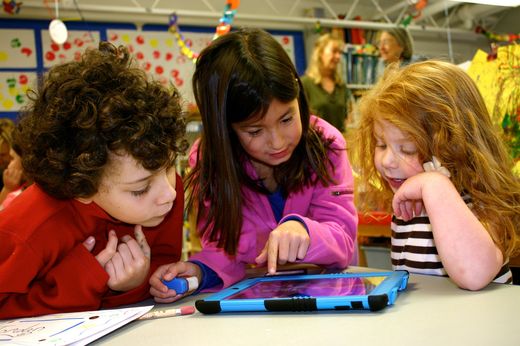
Supporting early literacy development in a classroom of preschoolers takes many different tools and tactics. Some children immediately walk into the classroom and head over to the book corner each morning. Those children seem to eat phonemes for breakfast. Children on the other end of the early literacy development spectrum may not engage in reading and literacy activities as eagerly. Recent literacy research from Kansas State University
implies that e-readers can be used to motivate less enthusiastic students.
E-readers can interest children in reading
In her research, Assistant Professor Lotta Larson used Kindle readers with second-graders. At the time, the version of the e-reader used allowed children to make the text audible, increase or decrease font size, and let them make notes while reading.
“It’s interesting to see the kinds of things these kids have been able to do,” Larson explained in a press release. “As a teacher, I know a student understands the book if she’s talking to the characters. If you take a look at those notes, it’s like having a glimpse into their brains as they’re reading.”
While research continues to emerge about the impact of e-readers and e-books on early literacy and language development, we compiled current best practices for early childhood teachers to use in the classroom.
Early literacy development through music and technology
At Kindermusik International, we share a commitment to follow, participate in, and integrate the latest research on how children learn best, including educationally appropriate ways to include digital formats of music and books. Our standards-based early language and literacy curriculum, ABC Music & Me, uses music as the vehicle for learning in preschools, daycares, and public schools while also appropriately implementing technology into the process. We’d love to schedule a demonstration to show you firsthand how to use music, technology, and the latest research to teach children early language and literacy, including at risk students who may also be reluctant readers.
For more information about using ABC Music & Me to boost early literacy and language development, email us at info@abcmusicandme.com.




